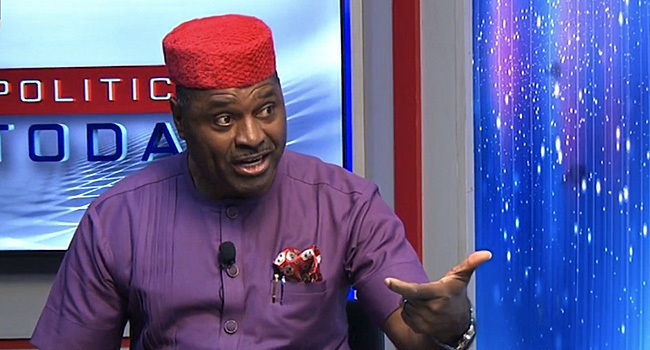Veteran actor turned politician and legal practitioner, Kenneth Okonkwo, has revealed that he will throw his weight behind a northern candidate in the 2027 presidential election, a significant shift from his previous political alignment. The former spokesperson of the Labour Party Presidential Campaign Council, who is now a member of the African Democratic Congress (ADC), made the statement during a recent media interaction, emphasizing that his decision is driven by a recalibrated political strategy.
Okonkwo, who played a prominent role in mobilizing support for Mr. Peter Obi during the 2023 general elections, said he has reassessed the political landscape and concluded that supporting a credible candidate from the North may be the most pragmatic path to achieving a united and effective leadership in Nigeria’s complex federal structure. He noted that his endorsement would not be based on ethnicity or religion, but on competence, national appeal, and proven integrity.
“My strategy this time around is to support a northerner in 2027,” Okonkwo said, adding that the decision follows what he described as a painful but insightful lesson from the 2023 elections. He argued that electoral victory in Nigeria requires broader coalition-building that reflects the country’s diversity and political realities.
The seasoned actor, best known for his role in Nollywood’s early blockbuster Living in Bondage, has over the years evolved into a vocal political figure, known for his passionate commentary on national issues. Since his defection from the Labour Party, he has continued to advocate for a restructured Nigeria and better governance, calling for leaders who can transcend tribal affiliations and deliver genuine reforms.
His current party, the ADC, which positions itself as a third force outside the dominant APC and PDP blocs, has been quietly building momentum ahead of 2027, with calls for youth inclusion, economic innovation, and credible alternatives to mainstream political establishments. Okonkwo’s statement is likely to stir conversations within the party and across opposition ranks, especially given his grassroots influence and media visibility.
While he did not disclose the identity of any potential candidate he might support, the timing of his declaration is significant, coming at a period when political consultations and realignments are beginning to gather steam ahead of the next general election. With President Bola Ahmed Tinubu expected to complete his first term by then, and growing speculation about zoning and rotation arrangements, Okonkwo’s support for a northern aspirant adds a new layer to the unfolding permutations.
Political observers say the move could signal a shift in southern political calculations, especially among those disenchanted with the outcome of the last election. It may also reflect a broader strategic effort to foster national cohesion through cross-regional alliances.
As Nigeria prepares for another critical electoral cycle, statements like Okonkwo’s will continue to shape public discourse, influence voter sentiment, and test the resolve of political actors seeking to reshape the country’s democratic narrative.

